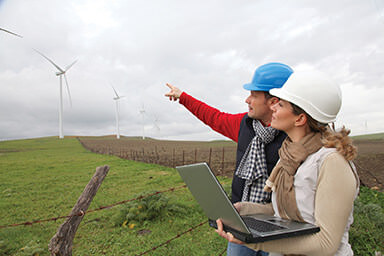
The focus of this issue is on women in the energy industry, so I thought I would do my part in this column. In one sense, it is natural, if not automatic, to associate women with the common definition of “energy.” We all have stories we can tell about our mothers, grandmothers, wives, aunts, sisters, teachers and friends who demonstrated seemingly inexplicable, boundless energy — most of the time because that’s what they needed to do to get the job done. These women are inspirational and are usually the reason that men achieve any success in life.
So, it is only logical that women would be, and increasingly are, succeeding in the energy industry today. It is the case, of course, that the oil and gas industry, historically, has been dominated by men, since Colonel Drake officially kicked it off near Titusville, Pennsylvania, in 1859. Unsurprisingly, especially because the business revolves around intensive manual labor and harsh conditions, the industry has remained male-dominated for longer than other industries and professions, as more women have entered the workforce over the past several decades.
During my career, I have been privy to more than a few conversations in which old, crusty field foremen, pumpers — and even executives in the office — resisted the idea of women being able to play a meaningful role in this business. As is usually the case, the cause of this resistance was an unwillingness to contemplate change as a possibility. In other words, it’s not that women were incapable of playing meaningful roles in the oil and gas business; it’s just that they never had.
Change eventually dips its toe in the water and then spreads like the ripples it produces. Women now are well represented in every segment of the industry, and their presence and influence continue to spread.
One organization, in particular, is a noticeable contributor to helping women succeed in their effort to excel in the energy industry — the Women’s Energy Network (WEN).
 Founded in Houston in 1994 by Karyl McCurdy Lawson, WEN is an organization whose mission is to foster the development and advancement of their members’ careers in energy by developing a strong network and enhancing their leadership skills. White, at the time, was Assistant General Counsel at MidCon (the predecessor to Kinder Morgan) and noticed that she was typically the only woman involved in energy transactions for the company. She believed other women were in similar positions in other companies, so she decided to start an organization that would create the opportunity for similarly situated women to connect and further develop their careers. White went on to be General Counsel at Freeport LNG, followed by time in private practice before retiring.
Founded in Houston in 1994 by Karyl McCurdy Lawson, WEN is an organization whose mission is to foster the development and advancement of their members’ careers in energy by developing a strong network and enhancing their leadership skills. White, at the time, was Assistant General Counsel at MidCon (the predecessor to Kinder Morgan) and noticed that she was typically the only woman involved in energy transactions for the company. She believed other women were in similar positions in other companies, so she decided to start an organization that would create the opportunity for similarly situated women to connect and further develop their careers. White went on to be General Counsel at Freeport LNG, followed by time in private practice before retiring.
Little did she know that her idea to start a networking organization for female professionals in the energy industry would grow to what it is today. WEN currently has 16 chapters with over 4,000 members. Those chapters are in Colorado, Oklahoma, Louisiana, Washington, D.C., Georgia, Massachusetts, Illinois, West Virginia, New York, two in Pennsylvania and four in Texas — as well as in Mexico.
The founding chapter in Houston proudly boasts over 2,200 members. Their current president, Kara Byrne, is with Baker Hughes; and SHALE Magazine’s Publisher and CEO, Kym Bolado, is on their board of directors. The North Texas chapter (Dallas) was the first chapter formed outside of Houston in 2009 and has over 275 members. Their current president, Carly Hewett, is an attorney with the Dallas law firm of Freeman, Mills.
The South Texas chapter (San Antonio) was formed in 2013 and has over 200 members. Their current president, Alex Moczygemba, is with Valero; and SHALE Magazine’s Chief Operating Officer, Lauren Guerra, is on their board of directors. The Permian Basin chapter (Midland) was formed in 2015 and has over 250 members. Their current president, Brook Riley, is with Concho Resources.
Other regional chapters include the Colorado chapter (Denver), established in 2016, with almost 500 members, led by their current president, Chantell Taylor, who is with Anadarko. The Greater Oklahoma chapter (Oklahoma City) was formed in 2015, has over 900 members and is led by their current president, Cathy Lebsack, who is with Devon. The South Louisiana chapter (New Orleans) was founded in 2009, has over 100 members, and is led by their current president, Michele DeShazo, who is an attorney with the Kuchler, Polk law firm.
The officers and members of the respective boards of directors for these chapters are with prominent oil and gas companies, law firms, engineering firms, accounting firms and banks. These women are accomplished lawyers, accountants, engineers, landmen and bankers. As you can tell, the Houston chapter and the more recently formed chapters outside Houston have impressive membership numbers, bringing together female professionals from all across the energy industry. In fact, over 76 companies and firms in the energy industry are represented by WEN members.
WEN seeks to attract more women into the energy industry through outreach programs; retain and develop women in the energy industry by fostering relationships; and develop leadership competencies and industry insights through strategic partnerships. Individual chapters pursue these objectives through happy hours, lunch programs, leadership seminars, webinars and mentoring groups. The Greater Oklahoma chapter alone has over 200 participants in their mentoring program. WEN chapters also form partnerships with other organizations, such as the Girl Scouts, YWCA and area STEM programs, to encourage young girls to seek careers in the energy industry. In a nutshell, WEN focuses on networking, education and community.
I have had the privilege of speaking to the Permian Basin chapter at a past lunch meeting and can personally attest to how impressive the chapter and its members are. The chapter’s current president, Brook Riley, is a Geoscience Technology Supervisor with Concho Resources and has been a developmental geologist for Exxon and other companies, working in the Middle East, West Africa and the Gulf of Mexico. The next chapter president will be Laci Stretcher, who is a proud Texas Tech School of Law alumna and currently handles land operations in New Mexico for Apache.
WEN is just one of the impressive and dynamic examples of how women are increasing their presence in the energy industry in a meaningful way. Resistance to change relies heavily on unfamiliarity and a small-minded view that tradition is preferable for its own sake, and not because it actually produces a better result. When it gets right down to it, oil and gas people are very practical and bottom-line oriented. As more and more women demonstrate their ability to deliver superior results, past resistance to change will give way to a common pursuit of excellence and ultimate success.
About the author: Bill Keffer is a contributing columnist to SHALE Oil & Gas Business Magazine. He teaches at the Texas Tech University School of Law and continues to consult. He also served in the Texas Legislature from 2003 to 2007.
Freebird7977/bigstock.com, Goodluz/bigstock.com














